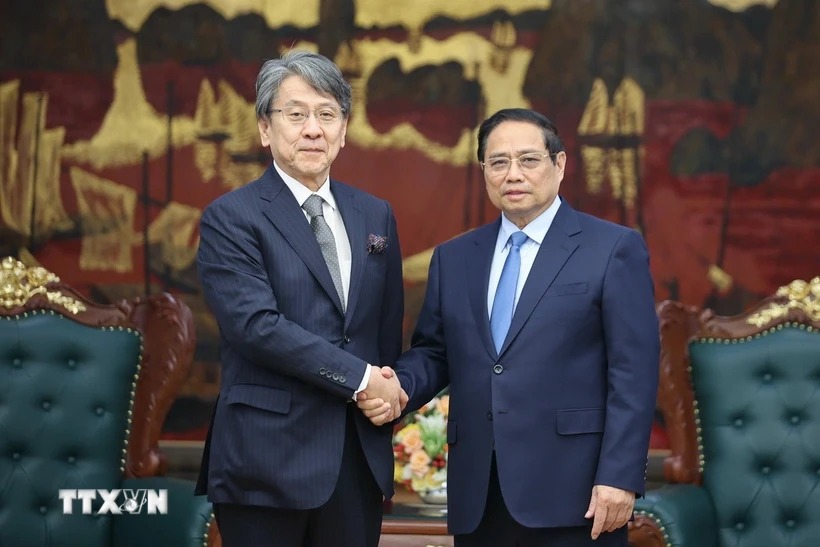HCMC – Prime Minister Pham Minh Chinh has urged the Japan Bank for International Cooperation (JBIC) to support the financial restructuring of the Nghi Son Refinery and Petrochemical project as part of preparations for its second phase.
The Vietnamese Government leader on the morning of June 29 met with JBIC Chairman Maeda Tadashi and his delegation who are on a working visit to Vietnam, according to the Vietnam News Agency.
PM Chinh praised JBIC’s role in promoting Japanese investment in Vietnam, particularly its financing of infrastructure and energy projects, support for small and medium-sized enterprises, and most recently, the over US$800 million loan for the Block B gas project.
He paid particular attention to the Nghi Son Refinery and Petrochemical LLC (NSRP), a joint venture between Vietnamese, Kuwaiti, and Japanese partners. JBIC serves as the project’s largest financier.
NSRP has been operational since 2018, with a processing capacity of 10 million tons of crude oil per year, which meets 35-40% of Vietnam’s fuel demand. However, while foreign partners have been profitable, the Vietnamese side has suffered prolonged losses due to an unfavorable mechanism for profit-sharing and input costs.
The prime minister urged JBIC to continue collaborating with partners to accelerate the financial restructuring of the project, ensuring operational efficiency and setting the stage for phase two.
He also called on JBIC to continue supporting Vietnam’s green transition, particularly by facilitating loan financing for 15 large-scale projects worth over US$20 billion under the framework of the Asia Zero Emission Community (AZEC).
PM Chinh highlighted Vietnam’s sweeping reforms aimed at achieving growth of 8% or higher this year, with a focus on key infrastructure projects like expressways, seaports, urban rail, high-speed rail, and nuclear power, and called for JBIC and Japanese businesses to provide support in funding, technology, and human resources.
JBIC Chairman Tadashi praised Vietnam’s development and reaffirmed the bank’s commitment to supporting green transition projects under the AZEC framework.
He said JBIC and Japanese businesses are ready to participate in infrastructure projects, particularly high-speed rail and transit-oriented development (TOD).
Regarding the Nghi Son project, he noted that JBIC is actively working with stakeholders to resolve existing challenges in line with the prime minister’s directives.









